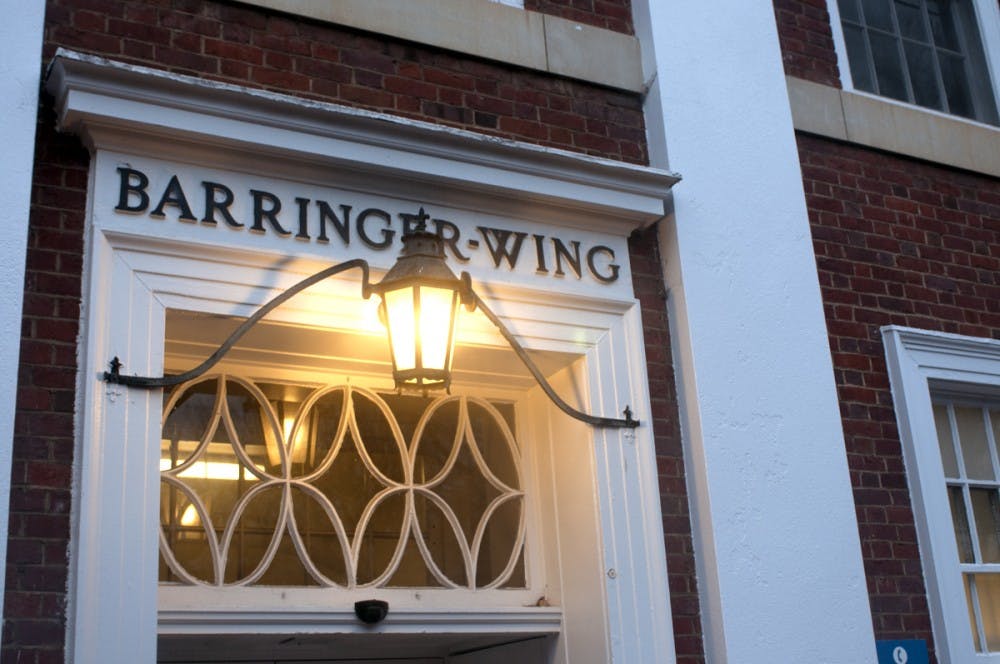Both the City of Charlottesville and the University are frequently condemned for failing to sufficiently address the blatant racism that has plagued the community for centuries. From Confederate statues to the names of various parks, community members have recently begun to hold the City and University accountable for the pervasive culture of racism that makes many feel unsafe and unwelcome. This includes renaming buildings that continue to honor the legacy of those who spread prejudice in the community, such as the recent calls to rename Alderman library due to President Edwin A. Alderman’s promotion of eugenics.
However, one such place has gone widely unnoticed in the public sphere for quite some time. There is a wing in the University hospital named after Paul Barringer — one of the highest ranking officials during his time at the University. He was a prominent researcher and professor at the University of Virginia School of Medicine, as well as an essential figure in the initial establishment of the hospital. Outside of the Charlottesville community, he was also an extremely well-respected scientist from the late 19th to the early 20th century. Barringer was also known in particular for his work in the field of eugenics, where he advocated the superiority of the white race. His views are clearly racist and deserve condemnation, regardless of how beneficial his contributions may have been to the community. It is shameful that the University's hospital continues to honor Barringer, and we strongly believe his wing at the hospital should be renamed.
Barringer is perhaps most famously known for his essay “The American Negro: His Past and Future,” which was first presented in 1900 at a medical convention in South Carolina. In this essay, Barringer presents several racist arguments regarding the roles slavery played in America and in the lives of African-Americans. He often stated that the newly freed black community was “savage” and posed a threat to society because they possessed “no self-control.” He went on to say this “dishonesty gives theft, anger gives murder, and desire rape. This state of being is pathognomonic of savagery; and the African fills the bill,” demonstrating his belief that there is a connection between criminality and race. He even went as far as to say that abolishing slavery, a necessary “controlled environment” in his eyes, would only give rise to an increased number of “black beast rapist[s].”
Additionally, Barringer’s essay supports the idea that African Americans actually benefited from slavery, as a result of their “inherent savagery” and “genetic inferiority,” which according to Barringer, also added to an increase in illnesses such as syphilis in the black population.
These ideas held by Barringer not only demonstrate his individual racist tendencies, but they also greatly influenced those around him. In fact, some of Barringer’s students went on to be prominent leaders in the infamous and highly unethical Tuskegee Study, where researchers conducted an experiment on 600 black men — 399 with syphilis and 201 who did not have the disease — without informed consent, all while knowingly misleading participants for 40 years. Even after penicillin became a customary treatment for syphilis in 1945, the physicians conducting the experiment deliberately left participants in the study untreated to observe how the disease would affect the human body.
As for his other works, Barringer was well-respected in his time and commonly cited for his promotion of eugenics in post-slavery America — when in reality, he should be condemned for it. Eugenics was used to justify laws prohibiting interracial relationships, encouraging racial segregation and purifying the white race. Such a legacy is reason enough to finally remove Barringer’s name from the University’s Hospital.
Values such as those held by Barringer are not acceptable, tolerable or representative of the message Charlottesville and the University should be supporting. Barringer's legacy also serves as a reminder of the many other racist historical figures who continue to exist in the University's landscape. When confronting Charlottesville’s past, it is more important than ever that such racism be both acknowledged and removed from the everyday lives of community members who deserve a welcoming and safe environment. A good place to start would be to remove names such as Barringer’s from the buildings around us — his hatred should not have a place here.
The Cavalier Daily Editorial Board is composed of the Executive Editor, the Editor-in-Chief, the two Opinion Editors and their Senior Associate. The board can be reached at eb@cavalierdaily.com.







